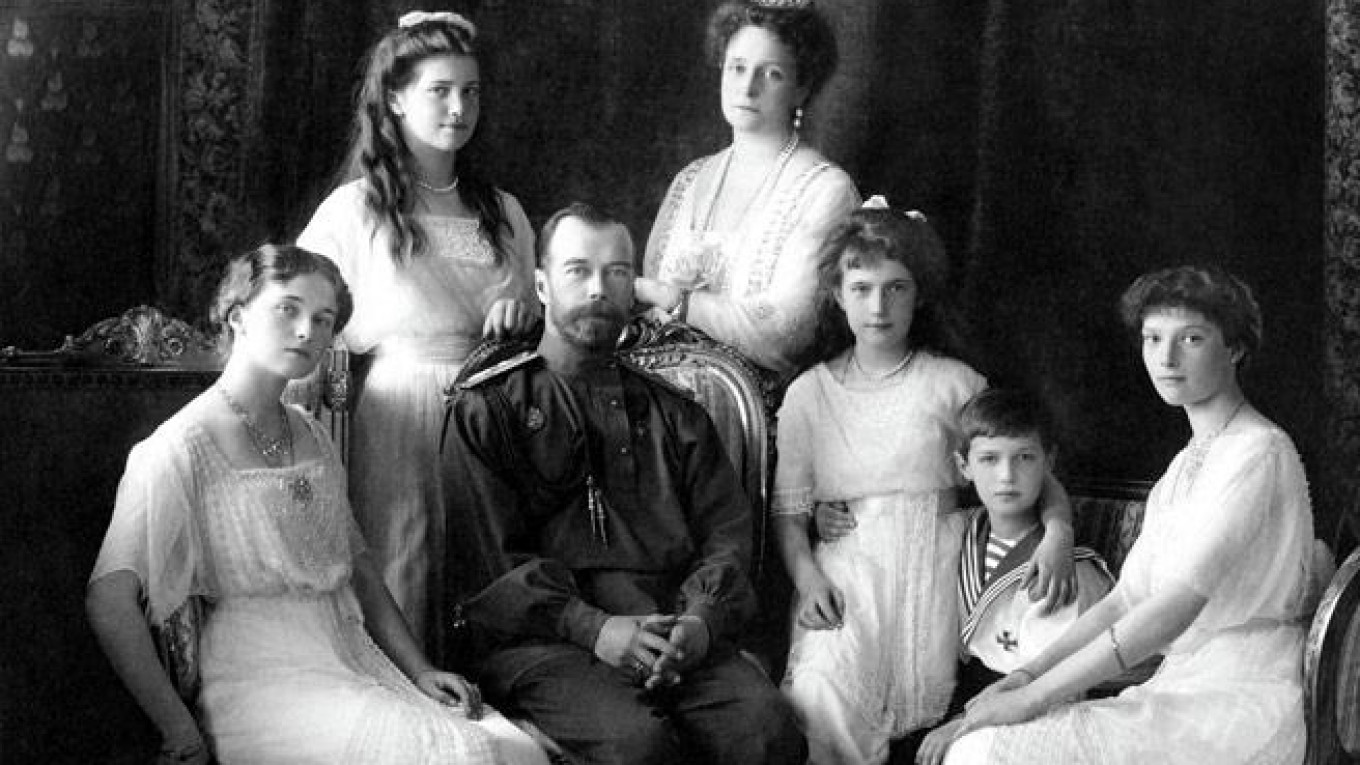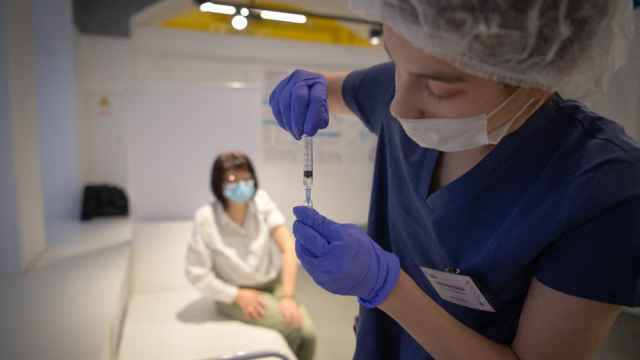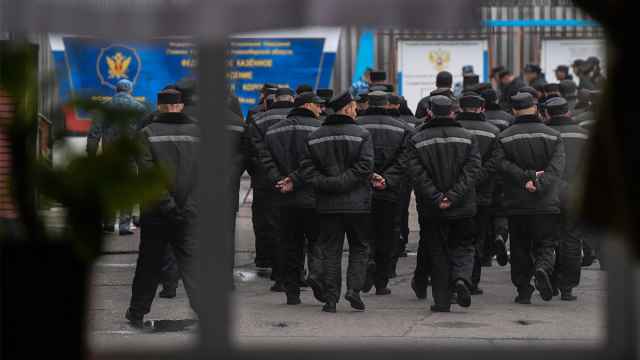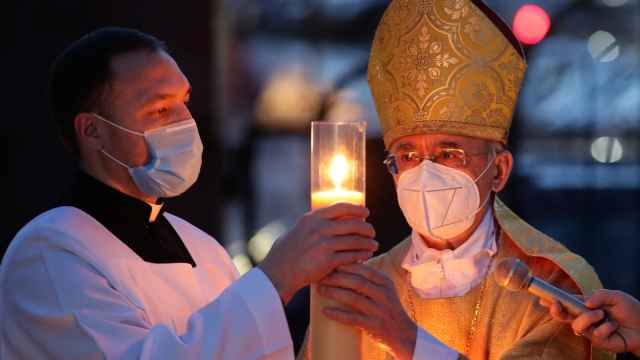Jewish groups in Russia are on edge this week after a prominent Russian bishop gave life to a conspiracy theory that Tsar Nicholas II and his family were murdered in a “ritual killing.”
The uproar came after a conference in Moscow on Monday, summarizing the findings of two separate investigations into the execution of the Romanov family — one led by the Russian Orthodox Church, and the other by Russia’s Investigative Committee.
Several theories were under consideration, Father Tikhon Shevkunov — a priest widely rumored to be President Vladimir Putin’s spiritual advisor — said at Moscow’s Sretensky Monastery. But “a significant part of the Church commission has no doubt that this was a ritual murder.”
The comment hit a nerve among Jewish groups, who say the conspiracy theory has anti-Semitic roots. Even more concerning, they say, is that an Investigative Committee representative said that it too would be examining the validity of the claim.
What happened?
In July 2018, Russia will mark the centenary of the murders of Tsar Nicholas II and his wife and their five children, who were executed by Bolshevik revolutionaries in Yekaterinburg.
After canonizing Tsar Nicholas II and his family in 2000, the Russian Orthodox Church pushed for a fresh investigation into their deaths in 2015. With the centenary of the deaths approaching, their significance in Russia has again taken on meaning.
Marina Molodtsova, a spokesperson for the committee, said at the conference that the investigators would conduct a "psychological-historical examination" of the claim that they were killed in a ritual killing.
What is the conspiracy?
On Tuesday, Father Tikhon Shevkunov elaborated on the theory in an interview with the state-run RIA Novosti news agency.
“Quite a few people involved in the execution,” he was cited as saying, “saw the killing of the deposed Russian emperor as a special ritual of revenge.”
He added that Yakov Yurovsky, a Jew who participated in the executions, later boasted about his “sacral historic mission.”
The purpose was to “ritually and symbolically end the 300-year Romanov dynasty,” Shevkunov added.
Vladimir Solovyov, who for 14 years investigated the murders for the Investigative Committee, spoke about the conspiracy with Ekho Moskvy editor-in-chief Alexei Venediktov in early October.
Supporters of the theory, Solovyov said, believe a local Jewish sect “burned the bodies [of the Romanovs] and drank the ashes with tea.”
During the conversation, Solovyov tried to put the matter to bed. “There are no grounds for believing that it was a ritual murder,” he said.
The conspiracy’s roots
The head of the Federation of Jewish Communities of Russia Alexander Boroda denounced the theory immediately after it resurfaced on Monday. “The accusation of Jews in the ritual murder is one of the most ancient anti-Semitic slanders,” he said.
Speaking to The Moscow Times, Oleg Budnitsky, a historian focused on World War II at Moscow’s Higher School of Economics agreed, saying that the theory is “total nonsense.”
“It comes from an old myth that Jews used the blood of Christians in ritual killings,” he said.
On top of that, some of the leading Bolsheviks of the revolution, including Yurovsky — one of the Romanov family’s executioners — were Jewish, which has helped the conspiracy theory flourish.
Theories of a Jewish conspiracy have circled among fringe anti-Semitic groups for a century, but many are surprised to see them given credence in official circles.
While Shevkunov and Molodtsova — the bishop and investigator — did not explicitly connect the “ritual killing” with Jews on Monday, Budnitsky, the historian, said “everyone” knows that the theory has anti-Semitic roots.
What to read into it?
It is unclear why the conspiracy was brought up in official circles a century after the murders, the spokesperson of the Federation of Jewish Communities of Russia, Boruch Gorin, told The Moscow Times on Wednesday.
Noting that anti-Semitism has long been a running undercurrent in Russia, Gorin said that the re-emergence of the theory was “shocking.”
But, he said, it signals a strong anti-Semitic current in the Orthodox Church and at the highest levels of government, unless the Kremlin denounces it.
“If the government doesn’t strongly denounce this, then it shows that at any moment anti-Semitic propaganda can come back into full force like during the late 1970s in the Soviet Union,” he said. “This can blow up anti-Semitism very forcefully.”
But on Wednesday, the Kremlin’s spokesman Dmitry Peskov was cited by state media brushing the controversy aside.
“This is not a matter of our agenda,” he said.
A Message from The Moscow Times:
Dear readers,
We are facing unprecedented challenges. Russia's Prosecutor General's Office has designated The Moscow Times as an "undesirable" organization, criminalizing our work and putting our staff at risk of prosecution. This follows our earlier unjust labeling as a "foreign agent."
These actions are direct attempts to silence independent journalism in Russia. The authorities claim our work "discredits the decisions of the Russian leadership." We see things differently: we strive to provide accurate, unbiased reporting on Russia.
We, the journalists of The Moscow Times, refuse to be silenced. But to continue our work, we need your help.
Your support, no matter how small, makes a world of difference. If you can, please support us monthly starting from just $2. It's quick to set up, and every contribution makes a significant impact.
By supporting The Moscow Times, you're defending open, independent journalism in the face of repression. Thank you for standing with us.
Remind me later.







